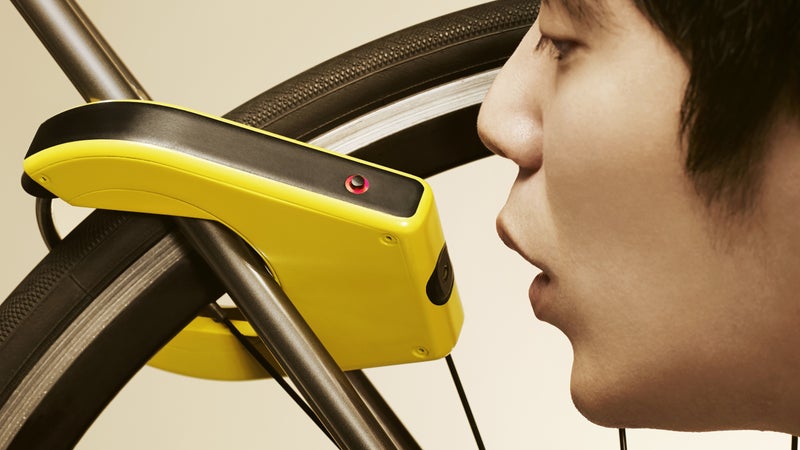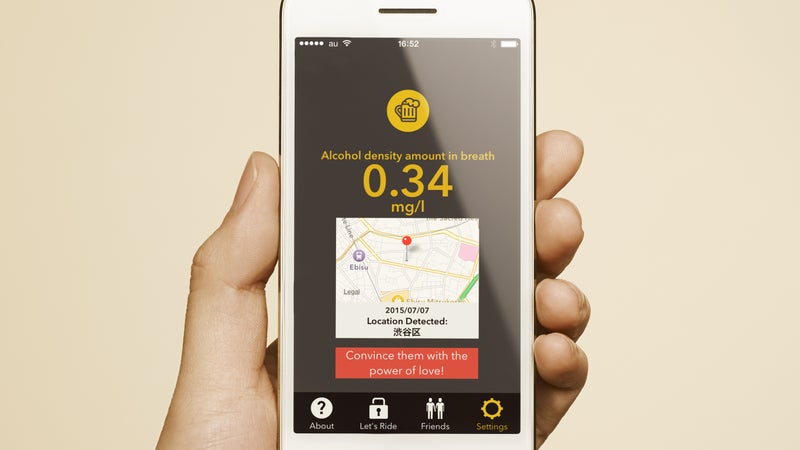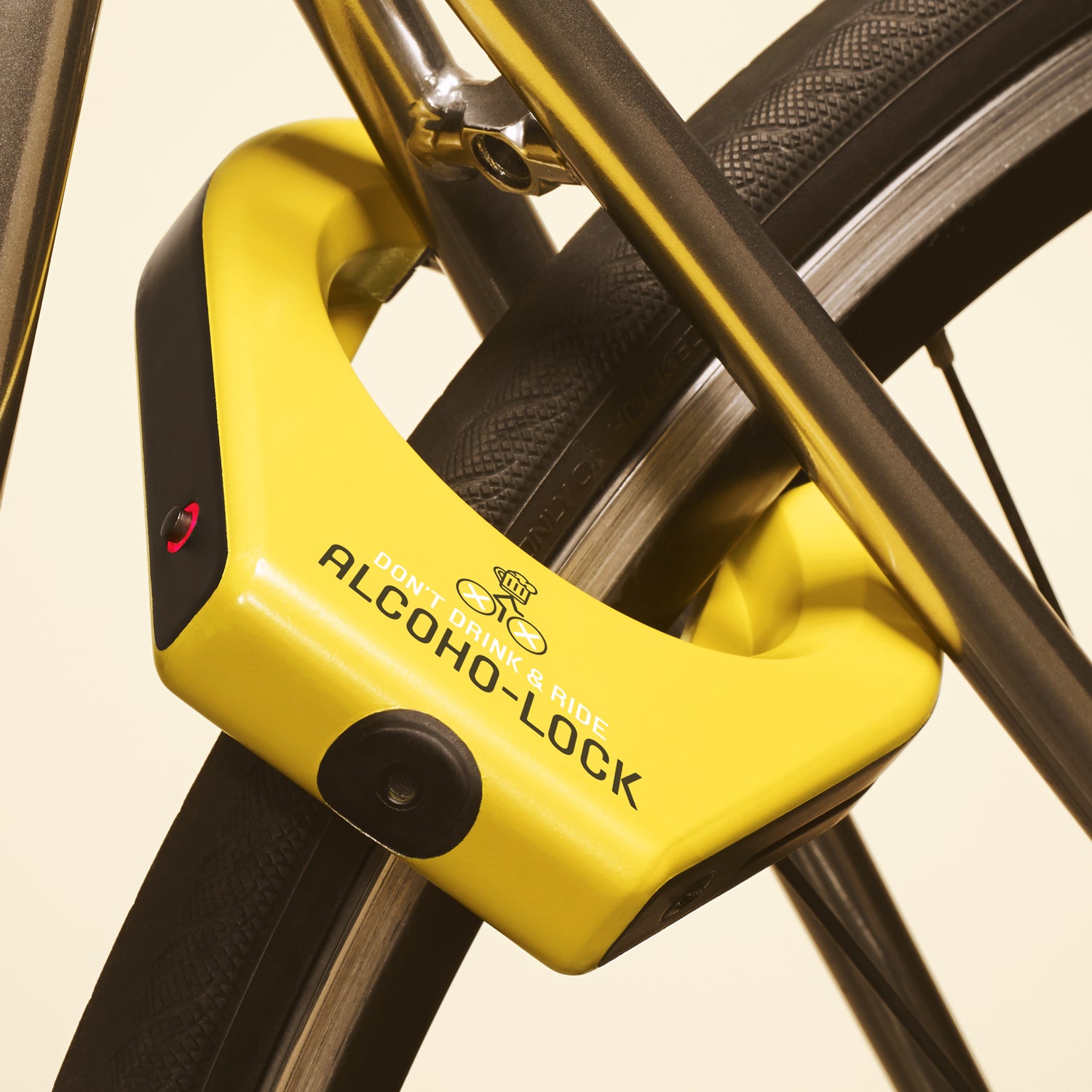Riding your bike to the bar always seems like a good idea: it’s eco-friendly, a BUI seems better than a DUI, and you look so cool.��
But drinking and riding is a real problem in the U.S. Even though alcohol-related vehicle fatalities have , alcohol-related fatalities for cyclists have increased, by the Insurance Institute for Highway Safety. The same study found that in 26 percent of fatal crashes involving a car and a bike, the cyclist was riding under the influence.��
Japan’s statistics are even grimmer, and pedaling under the influence can land you a ¥1 million fine or up to five years in prison.��
That’s why Toyko-based bike shop KOOWHO developed the Alcoho-Lock, which is currently . The breathalyzer-lock hybrid uses a MQ-3 semiconductor sensor to detect a user’s blood alcohol content (BAC). The idea is simple: you blow into the lock to unlock it, and if your BAC is higher than the legal limit, the device sends a message to a pre-selected emergency contact, who can either talk you out of riding home or come pick you up. (The Alcoho-Lock unlocks regardless of the BAC number.)

It seems like a potentially lifesaving invention. But researchers studying alcohol consumption aren’t convinced it’ll be all that effective. Igor Radun, PhD, a professor at the University of Helsinki’s Institute of Behavioral Sciences, says there’s limited, inconclusive data on the efficacy of personal breathalyzers. “Though technology appears to offer a seemingly quick and easy solution to a complex problem, the use of interlocks [devices that keep a car from working if the driver’s BAC is over a certain level] might bring a new array of problems, because the human response to technological solutions is rarely as straightforward as expected,” he on the subject.��
His real concern is that people will use breathalyzers to justify driving just under the legal BAC limit. Without a breathalyzer, a person might have assumed they were too drunk to drive and just taken a cab home. With it, they’re driving in a slightly impaired, but not illegal, state.��

Of course, just because you’re under the legal limit doesn’t mean you’re okay to drive. Susan Bullers, PhD, a sociology professor at the University of North Carolina Wilmington, says BAC itself isn’t a helpful measurement, as people function differently at different levels. “I don’t drink very often, so I would feel like I was well past the point where I’d be able to drive and I’d be well below the limit,” she says.��
Sato hopes the Alcoho-Lock harnesses the power of good old peer pressure: that call from your sober buddy will be enough to dissuade you from riding home. Let’s just hope your friend picks up the phone when Alcoho-Lock calls him—and that he’s not the one downing shots beside you.
Alcoho-Lock is currently .��


